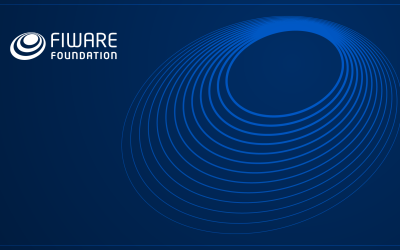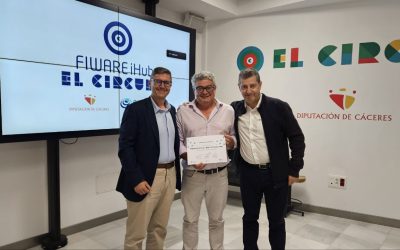Between October 16 and 18th, the city of Santander, Spain, hosted an event focused on the opportunities derived from using FI-WARE in Smart Cities. More than 300 people, including solution integrators, entrepreneurs, developers as well as representatives of public councils and administrations, attended the event.
They got the opportunity to learn how they can take advantage from using the advanced features supported by FI-WARE. In addition, they could learn how they can benefit from participating in the open innovation ecosystem that has been recently launched around FI-LAB, a live instance of FI-WARE available for experimentation.
They were able to see, first hand, how Smart Cities can connect to FI-LAB and publish their Open Data, allowing developers to create innovative applications with it. Several Spanish cities (Malaga, Santander, Sevilla and Zaragoza) announced they are doing so, giving response to the call for action launched by Commisioner Neelie Kroes who invited cities to bring their open data on FI-LAB early in September when she announced the launch of the European Innovation Partnership on Smart Cities and Communities.
The three-day event was organized around three itineraries. First, a full-fledge program of conferences and round tables where policy makers and experts on Smart Cities (such as RECI, the Spanish Network for Smart Cities) shared their views on Smart Cities and discussed about the opportunities brought by FI-WARE and FI-LAB. Secondly, an exhibition area where companies, including startups, presented their Smart City solutions and their plans regarding usage of FI-WARE.
Smart Cities conferences
Last but not least, a programming competition (AKA hackathon) where almost 100 developers met to try the creation of proof-of-concept applications for Smart Cities using FI-WARE. In all, the Magdalena Palace of Santander became a melting pot of ideas to promote development of Smart Cities in Europe.
The Magic Box team, formed by developers Ruben Ortiz, Ignacio Romero and Alvaro Dominguez from Madrid, won the first prize of the hackathon. They showed how Smart City applications developed on top of FI-WARE can be accessed from smart TVs (both at home or used as digital signages) enabling these devices to work as open interactive windows to the Smart City. Smart TVs can not only display information from sensors deployed in a city, but also allow further interaction triggered by this information, including actuation on devices, thanks to FI-WARE.
Magic Box team with mayor of Santander Iñigo de la Serna
The second prize was awarded to the team FI-bot, formed by Jesus Dominguez (Seville) and Angel Hernandez (Madrid) for a project that proved how applications based on FI-WARE can effectively interact with robots in order to monitor, process and analyze data or content they gather, as well as to manage their actions. Finally, two third prizes were awarded: one for the TrafficHeat project, by Justas Salkevicius (Lithuania) and Alejandro Perezpaya (Madrid), and one for Open Alerts, formed by Daniel Lopez and Antonio Sanchez Pineda from Malaga.
FI-Bot team
TrafficHeat predicts what the traffic may be at any point on a specific date and envisions a lighting system that alerts drivers about expected traffic density. Open Alerts, on the other hand, allows users to capture real-time information provided by city sensors and setup rules for triggering alerts and actions.
>> More photos from our days in Santander in our Flickr account


